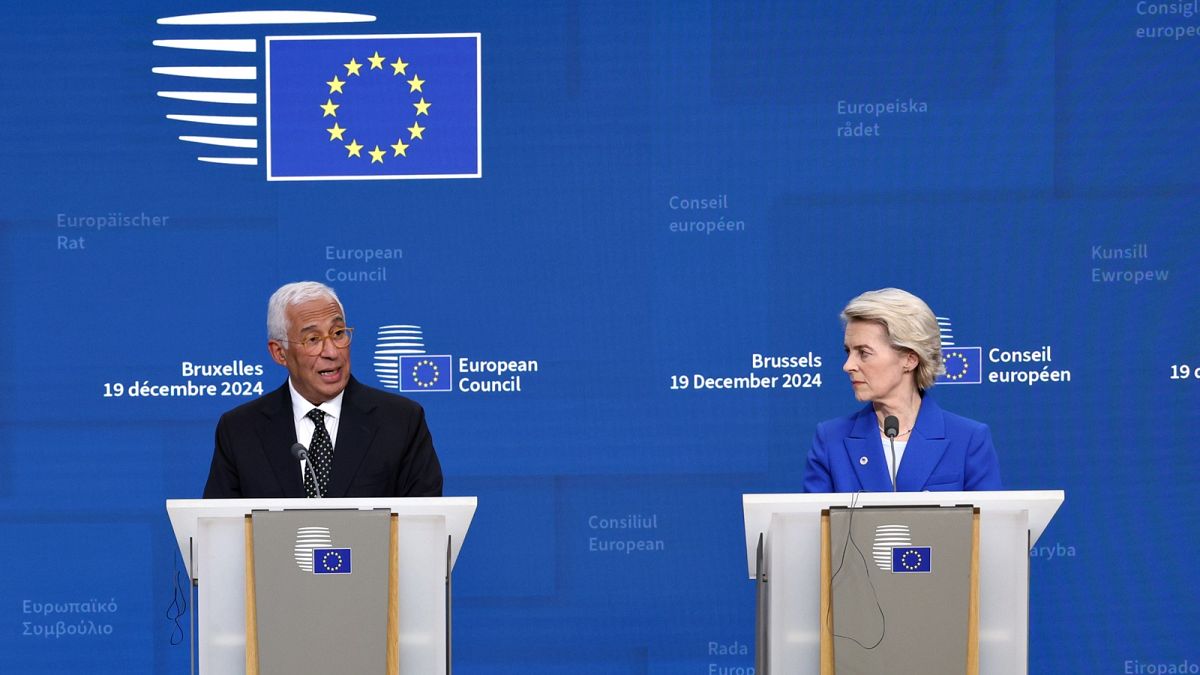The leaders of the European Union agreed on Thursday on the key principles they will follow to normalise ties with Syria after the overthrow of Bashar al-Assad’s autocracy, with the caveat that “the jury is still out” on the rebels leading the transition.
In their joint conclusions, the heads of state and government call for an “inclusive and Syrian-led political process” that will guarantee the country’s territorial integrity, national unity, protection of all religious and ethnic minorities and respect for human rights, while preventing the re-emergence of sectarian violence, extremism and terrorism.
Leaders also stressed that any return of the Syrian refugees living across Europe should be “safe, voluntary and dignified” due to the persistent volatility on the ground.
“We have agreed on the main principles and objectives of our approach in response to the fall of Assad’s regime,” said António Costa, the president of the European Council, at the end of a one-day summit in Brussels where Syria and Ukraine topped the agenda.
“For the very first time in a decade, the people of Syria can hope for a better future,” said Ursula von der Leyen, the president of the European Commission, next to Costa.
“Europe cares about the power going back to the people of Syria, and Europe has a role to play,” she added, noting the bloc’s role as Syria’s largest donor, with over €33 billion mobilised since 2011, which grants it greater leverage in the transition.
Brussels is now keeping a close eye on Hayat Tahrir al-Sham (HTS), the rebel forces that led the surprise offensive that toppled Assad and is guiding the provisional government with a caretaker prime minister. HTS has promised to move Syria from a state-controlled to a free-market economy, disband all rebel forces and promote an inclusive society.
“Syria must remain united,” said HTS leader Ahmed al-Sharaa, previously known by his “nom de guerre” Abu Muhammad al-Jolani. “There must be a social contract between the state and all religions to guarantee social justice.”
HTS, however, remains a proscribed terrorist organisation by the UN and all EU countries due to its previous link with al-Qaeda. The group has been accused of human rights abuses, including alleged executions for blasphemy and adultery carried out under a strict, and at times, extreme, interpretation of Islamic law.
This background has raised doubts about their ability to guarantee pluralism in the post-Assad era. Syria is a highly diverse country, inhabited by Sunni Muslims, who represent over 70% of the population, alongside Shia Muslims, Alawites, Christians and ethnic minorities like Druze, Iraqis, Armenians, Assyrians, Kurds and Palestinians.
“We all know that for now, the jury is still out. It is too early to say whether the new leadership will be able to deliver what they promise,” von der Leyen cautioned.
The EU sent earlier this week a senior diplomat to make direct contact with HTS, a first step towards normalisation of ties. During a trip to Turkey, von der Leyen opened the door for lifting the hard-hitting sanctions that were imposed against Assad’s regime.
The Commission chief has also vowed to step up humanitarian and development aid to help Syria rebuild from the ashes of a brutal, devastating civil war that left basic services and civilian infrastructure badly damaged.
“These efforts will have to be matched by real deeds by the new leadership in Damascus. So this is a step-by-step approach that we are choosing,” she said.
The conclusions sealed on Thursday clearly reflect this wait-and-see mode: for all the principles contained in the text, there is no concrete timeline for sanctions relief or revising HTS’s terrorist designation, two of al-Sharaa’s main requests.

